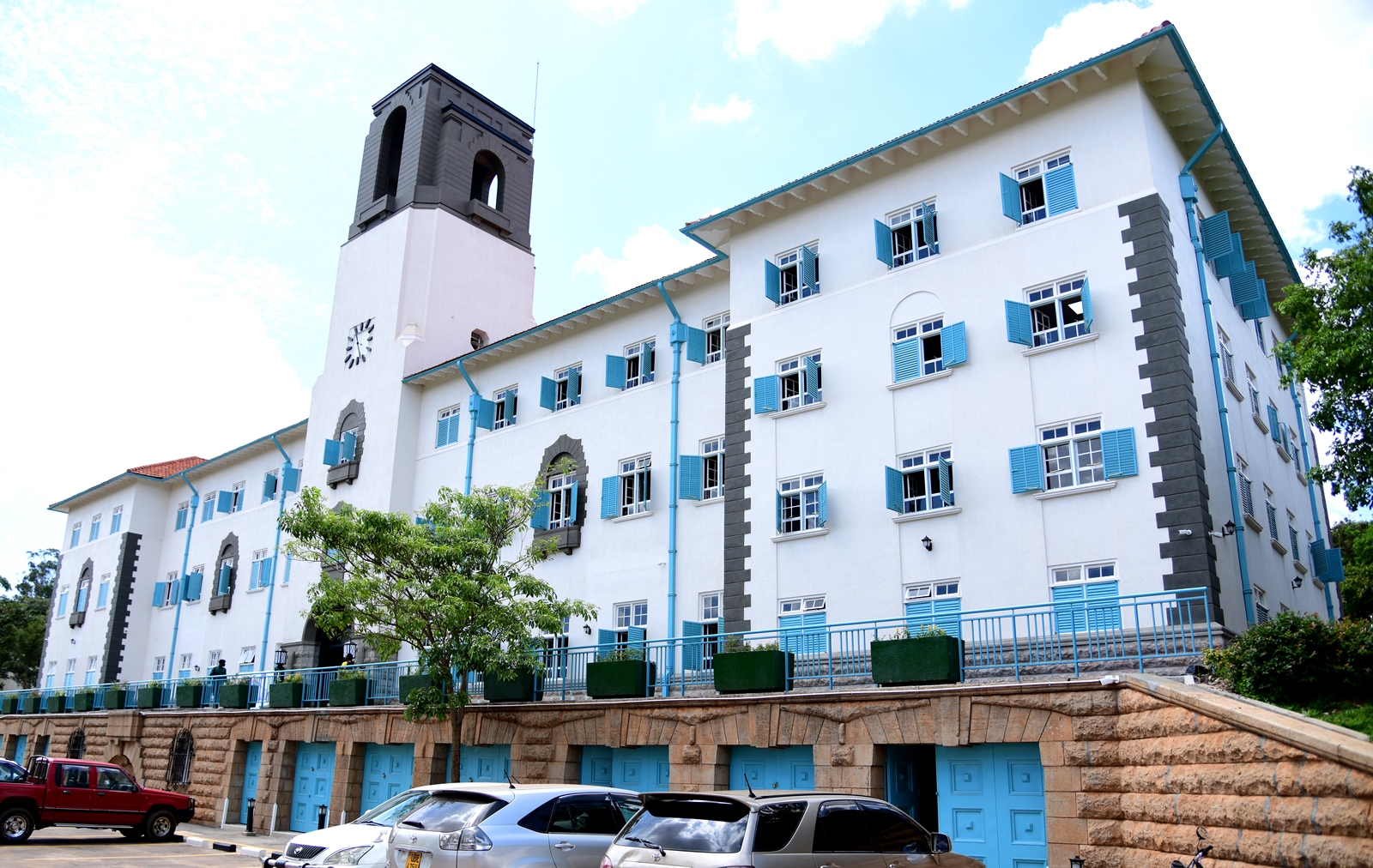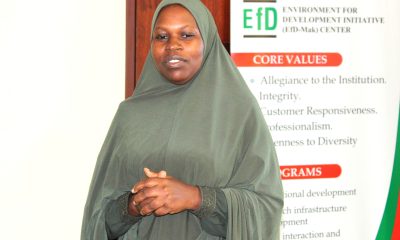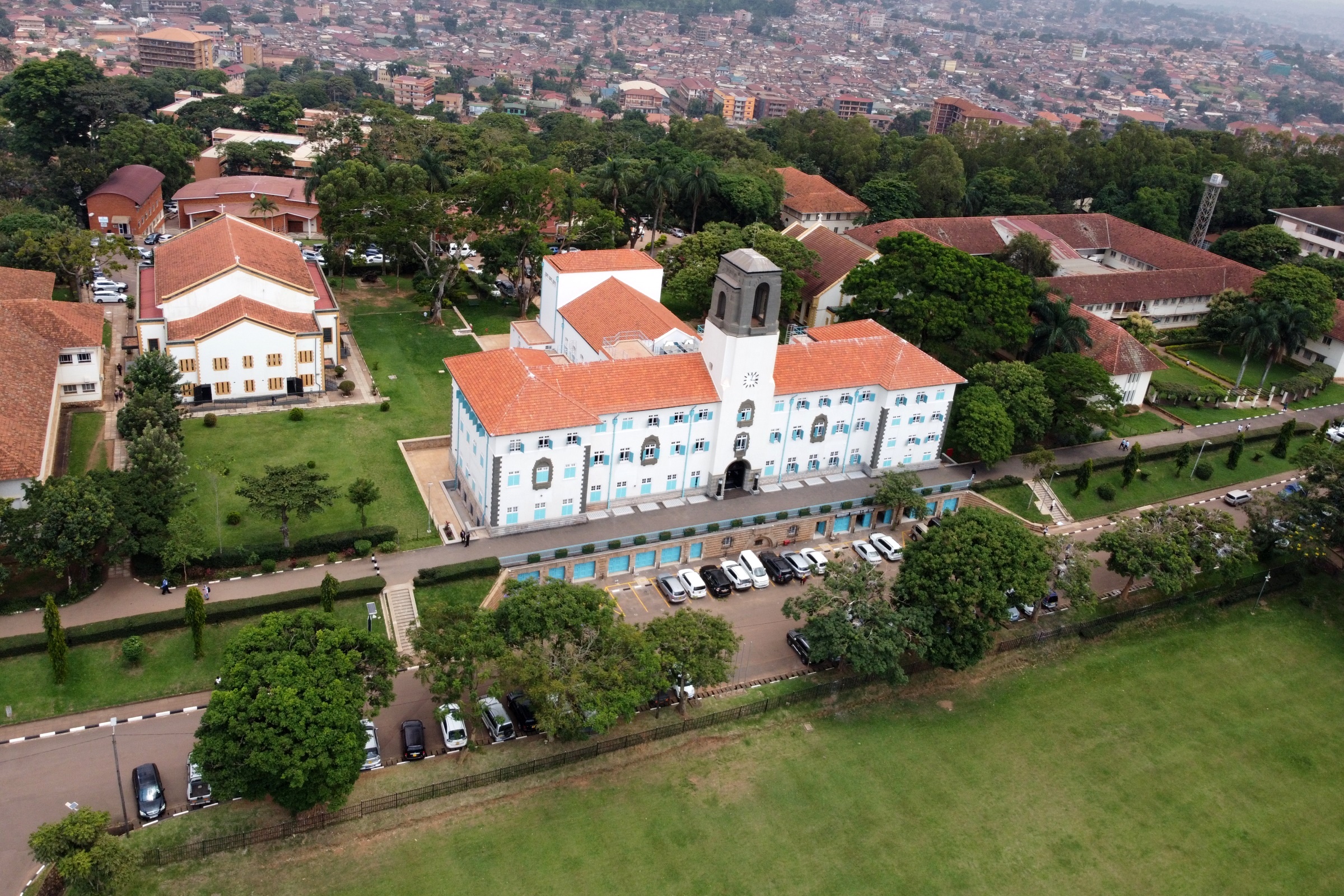Thursday, 06 February 2025
Makerere University Management has been keenly following the concerns raised on the X platform. As a public institution, we value constructive criticism and feedback as these present an opportunity to clarify issues and, in the process, enhance service delivery. However, the University Management has noticed several instances of disinformation and outright blackmail towards various University officers and would like to offer the following clarifications:
- Allegations of Solicitation of a Bribe by a Member of the University Council
The University Management received an audio recording in which a staff member is allegedly heard soliciting a bribe from colleagues to assist them in accessing higher positions during the recently concluded salary harmonization process. While the staff member in question is an elected representative of the support staff to the governing University Council, he is neither a member of the Appointments Board nor wields influence on its decisions.
Given the severity of the alleged offence and the position of the staff member, the University initiated immediate investigations and interdicted the staff member on Thursday 30th January 2025 to facilitate the investigation process. The staff member will be given an opportunity to present his case through a fair hearing before the Appointments Board.
- Appointment of Substantive Deputy Vice Chancellors
The Deputy Vice-Chancellor, Finance and Administration (DVC F&A) position became vacant after a legal challenge overturned the initial appointment and halted subsequent searches. After the appellant withdrew the cases, the University Council initiated a new search through the Senate. However, a contestant later petitioned, citing non-compliance with guidelines. The University Council referred the matter back to the Senate, which reviewed it on 12th December 2024. The revised report will be considered at the University Council meeting on 11th February 2025.
- The Deputy Vice-Chancellor, Academic Affairs (DVC AA)
The Deputy Vice-Chancellor, Academic Affairs (DVC AA) position became vacant on 30th November 2023 upon the end of the incumbent’s tenure. While the University Council was conducting an appraisal for possible reappointment, the DVC AA was appointed in an acting capacity. However, before the process concluded, a member of staff challenged the appraisal in court, making the matter sub judice. Consequently, the University Council deferred further consideration until the court resolves the case.
- Promotion Requirements for Associate Professors and Professors.
Academic staff promotions at Makerere University follow the Human Resources Manual (HRM), last amended in 2022. Policy changes are initiated by the Senate and take effect upon Council approval. Promotions are based on the criteria in place at the time, as recorded by the Senate and Council. All Associate Professors and Professors undergo rigorous assessment, including mandatory internal and external vetting by internationally recognized subject experts.
- Retirement of Associate Professors and Professors Post-60 Years
Makerere University mandates retirement at 60 in accordance with Ugandan law. To retain highly skilled talent, the University Council introduced a post-retirement contract policy under the Universities and Other Tertiary Institutions Act (UOTIA). The Appointments Board grants or renews these contracts based on outstanding performance in teaching, research, grants, and mentorship, subject to available vacancies and wage funds. Before approval, the University Management assesses the impact on staff promotions, ensuring no disadvantage to qualifying staff within a particular Department.
- Membership and Leadership of the University Council and its Committees
The University Council membership is constituted in accordance with Section 38(1) of the Universities and Other Tertiary Institutions Act (UOTIA), which outlines the criteria for appointing representatives from various constituencies, including the Government, staff, students, Kampala Capital City Authority (KCCA), persons with disabilities, and Council appointees.
The constituents are responsible for managing the selection process for their respective representatives. University Council members serve four-year terms, which can be renewed by the respective constituents in accordance with Section 38(3) of the UOTIA. It is important to note that no Council member, current or former, has ever served beyond the period specified by law.
The University Council elects its Chairperson and Vice Chairperson in accordance with Section 39 of the UOTIA. Additionally, the Council establishes the Appointments Board and all its Committees in compliance with Section 43 of the UOTIA and Section 38 of the Council Charter.
- Recent Policy Reforms at the University
The University Council has implemented key reforms to enhance service delivery and staff accountability. These include a biometric staff attendance system and the digitalization of student services such as application, admission, registration, fee payment, exam records, and graduation. These measures have improved lecture attendance, expedited transcript issuance, and strengthened student support. University Management and the Appointments Board actively monitor staff performance to reward outstanding performance and ensure compliance.
- Disciplinary Processes and Actions Involving Some Staff Members
Makerere University enforces disciplinary policies in line with the Human Resources Manual, Public Service Standing Orders, and Ugandan law. Staff who violate these policies face sanctions such as warnings, suspensions, interdictions, and investigations, all conducted with due process before an Appointments Board hearing. Recently, two senior staff members—one a Council member and the other a School Dean were interdicted over allegations of corruption and non-performance. Their interdiction ensures independent investigations without undue influence.
- State of the University Infrastructure
With substantial support from the Government, Makerere University has made significant strides in enhancing its critical infrastructure for teaching, research, and student residences/welfare, alongside initiating new infrastructure projects.
Following the phased approach to renovate student halls of residence, the University Management is pleased to report that the renovation of Lumumba Hall was completed in 2024, while that of Mary Stuart Hall is ongoing. On completion of the renovation of Mary Stuart Hall, the Contractors will proceed to Complex Hall.
The University has constructed two (2) new buildings for the School of Law and School of Dentistry. The Main Building was reconstructed and commissioned by His Excellency the President on 2nd October 2024.
In addition, two (2) structures are currently under construction namely the School of Public Health and the vertical extension of the School of Women and Gender Studies. In addition to Government support, we continue to receive support from our partners for infrastructure enhancement.
We Build for the Future


 General2 weeks ago
General2 weeks ago
 General5 days ago
General5 days ago
 General2 weeks ago
General2 weeks ago
 Natural Sciences6 days ago
Natural Sciences6 days ago
 Health1 week ago
Health1 week ago










